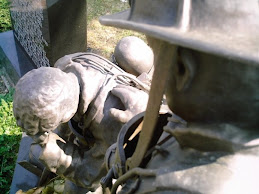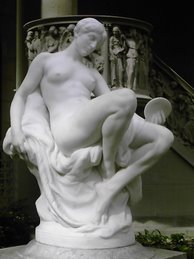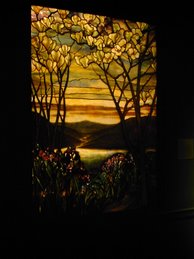By Joseph Kellard
Below are two letters I wrote last night and revised and emailed this morning to the editors at The New York Times. One is a response to an article about the Tea Party movement, the other a reply to an article on the role religion played in the founding of America. I must thank OActivist editors Paul Hsieh and Amit Ghate, who made some valuable suggestions and edits that improved my letters. Here's hoping they both get published. Happy reading ...!
To the Editor:
(Re: “Tea Party Lights Fuse for Rebellion on Right,” 2/16) The Tea Party movement is not about militia, libertarian or Timothy McVeigh-type anarchists. True, Tea Partiers are a hodgepodge, the best of whom rally loosely around the concept of liberty. Thus, their problem is something most Americans share: they lack a fundamental understanding of freedom.
Above all, they need intellectual leadership. Given the alarming growth of statism under the Bush-Obama administrations, both Republicans and Democrats are finally awaking to a long-developing threat. Disappointingly, the Tea Partiers' reaction has largely been on an emotional level, a sense that their individual sovereignty and rights to life, liberty and pursuit of happiness are in danger. Unfortunately, they can’t translate that sense into a much-needed coherent philosophical or political stance.
Americans must form a more intellectual platform that champions individual rights. Until then, the Tea Party will be impotent to effect any substantive or lasting change toward liberty. In short, it needs a philosophical revolution.
Joseph Kellard
East Meadow NY
To the Editor:
(Re: “How Christian Were The Founders?,” Sunday Magazine 2/14) Those who insist that America’s Founders established a nation based on Christianity drop historical context.
True, some Founders were Christians who made appeals to religion. But this was no different than their European predecessors throughout the religion-saturated Medieval and Middle ages who ruled over unfree Christian nations. What makes the Founders historically distinguishable is that they were products of the Enlightenment and Age of Reason, when religion and faith were seriously challenged, as encapsulated by Galileo’s life.
Many Founders, including Jefferson and Adams, were steeped in and heavily influenced by the works of Greek and Roman thinkers. The deists among them bravely questioned God and religion as the basis of a nation. Brooke Allen objectively lays out this intellectual revolution in her book “Moral Minority.”
The Founders knew enough to establish a nation that gave no religion any political authority, and aimed to keep it separate from the state.
Joseph Kellard
East Meadow NY
* I made some grammatical changes to the original post.
Wednesday, February 17, 2010
Subscribe to:
Post Comments (Atom)































+-+June+2009.jpg)











No comments:
Post a Comment